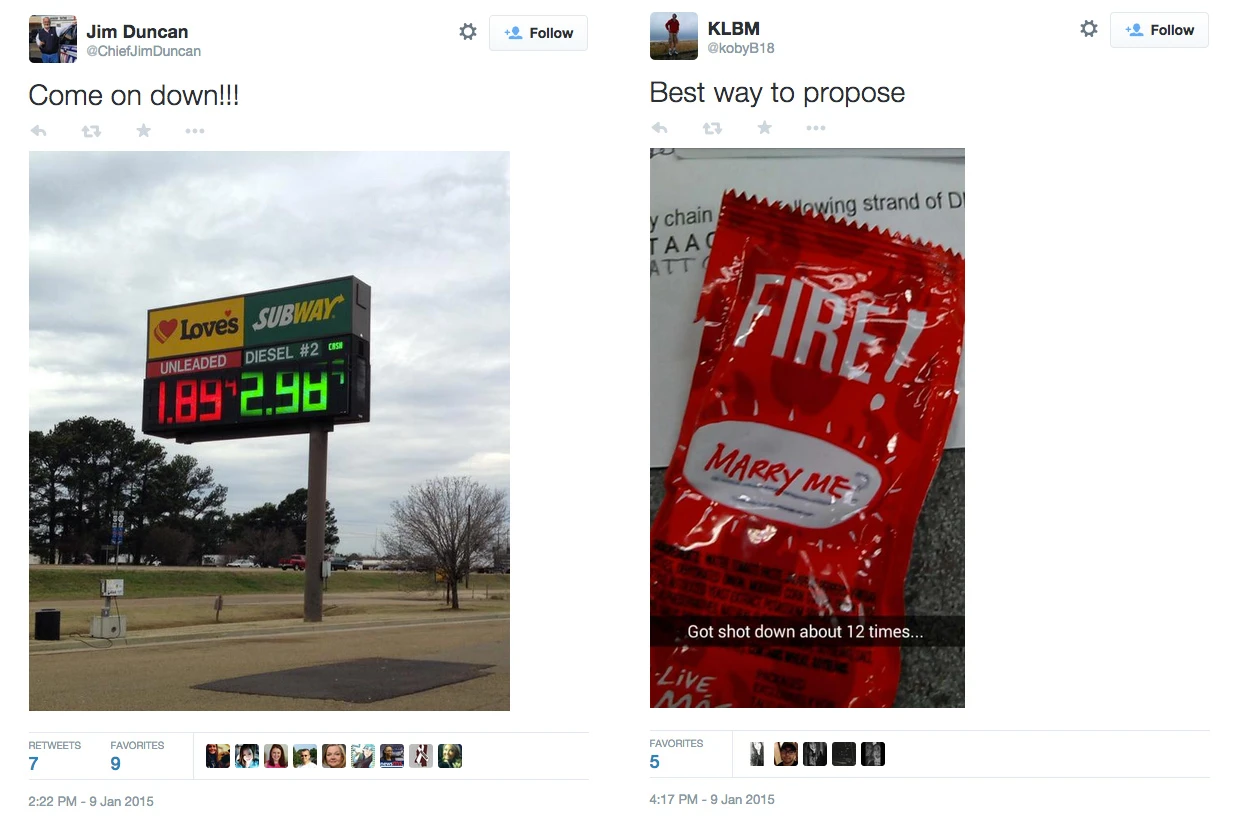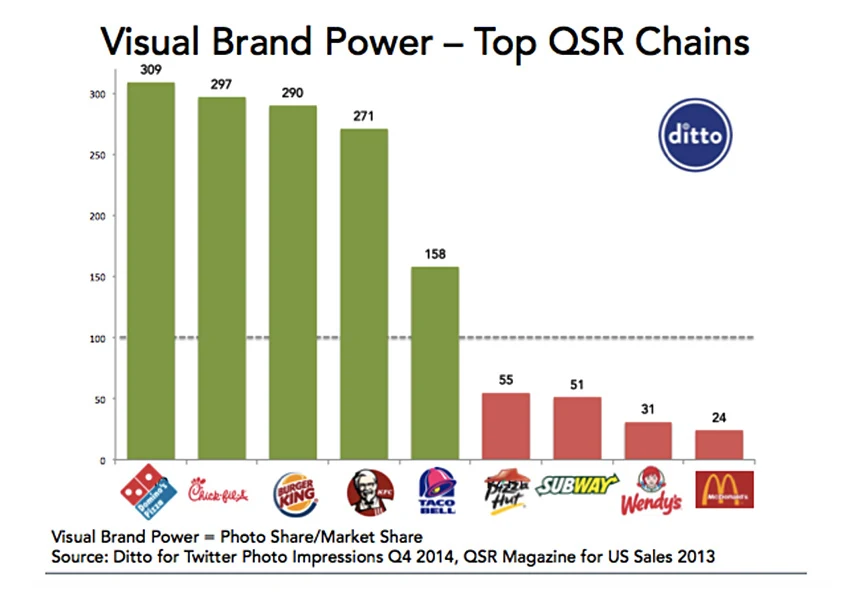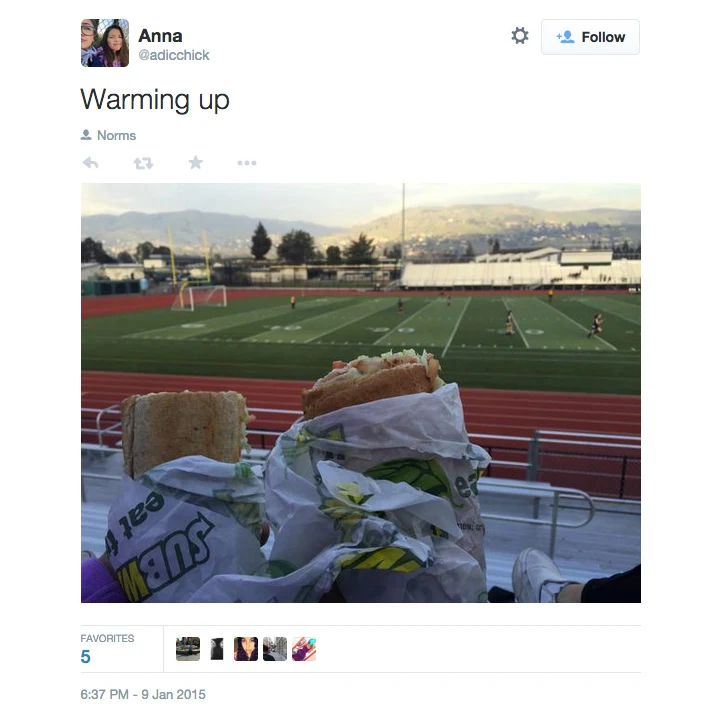The past few Valentine’s Days, when Taco Bell makes hot sauce packets covered in sayings like “Will you Marry Me?” and “Let’s Do This” the Internet blows up with people sharing how many times they’ve been shot down trying to propose via condiment. In a recent tweet, one British Domino’s fan described the new “Winter Survival Deal”–that’s a large pizza, garlic bread, potato wedges and hot doughnuts for £14.99–was an “almost sexual” experience for her. Five days ago, an Instagram user lovingly photographed his local Chick-Fil-A store with the hashtag #NoPlaceLikeHome.
There are times when you could be forgiven for thinking social media is just a one giant love letter to the fast food industry. But not all fast food chains are loved equally. It turns out that Twitter users are really not into sharing photos of their latest McDonald’s or Wendy’s experience. On the other hand, they will post seemingly anything with a Domino’s, Chick-Fil-A or Burger King logo on it.

Ditto, a photo recognition company that processes the 1.8 billion images shared publicly online every day, recently tracked how fast food brands stacked up against one another on Twitter based on how many pictures users posted with their logos. The method was simple: Ditto calculated how many times a fast food logo appeared last quarter, then divided it by that brand’s market share. (Ditto is savvy enough to identify the various iterations of a logo: KFC, for example, has multiple versions–one with Colonel Sander’s face and another with just initials.)
The results were surprising. Given how dominant McDonald’s is in the fast food universe–it holds 21.7% of the market, compared to Burger King’s 4.1% –it had the lowest score: consumers are just not “lovin’ it” on social media. “McDonald’s still has a lot of photos online, but when you compare it to what they should have, based on their market share, it was not getting it’s fair share of social photo sharing compared to it’s competitors,” says Mary Tarczynski, Ditto’s CMO. (Requests for comment from McDonald’s, Taco Bell, and Burger King went unanswered by the time of this posting.)

From Tarczynski’s analysis of brands that are winning on social media, Tarczynski says that visual sharing is not random or organic: brands that do well tend to encourage users to share photos. For instance, Wendy’s and Burger King have similar share of the market, but people are way more jazzed about sharing pictures of Burger King, partly because it encourages customers to take pictures of themselves with paper crowns widely available in stores. “In the Wendy’s Twitter stream there was a noticeable lack of user generated content,” Tarczynski says. “The brand was not engaging with their customers.” She also points to Taco Bell’s Valentine’s Day sauce packet campaign as another success story. “The Internet is going crazy with social photos of those packets,” she says.
Is it always good for a brand when customers share pictures online? Yes, Tarczynski says. The vast majority of social sharing around fast food companies is positive. They are usually just straightforward expressions of loyalty for a brand. “You get a lot of brand love,” Tarczynski says. “It’s sheer happiness: people eating or sharing that a friend has picked them up a packet of fries. They’re just saying, ‘Oh my gosh I am so happy with this meal.’”

Among the negative pictures shared online, a big chunk fall into the blooper category: people love sharing roadside signs advertising Burger King’s angus burger with the ‘g’ in angus missing, for instance. And users sometimes share pictures related to fair-wage protests, but they usually target the fast food industry as a whole, rather than calling out particular brands.
Recognize your brand’s excellence by applying to this year’s Brands That Matter Awards before the early-rate deadline, May 3.
